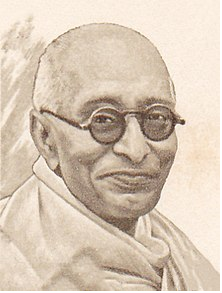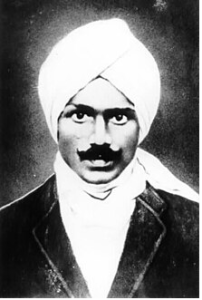14 Dec Renowned of freedom fighters of India: C. Rajagopalachari and Subhramaniyam Baharti
SYLLABUS MAPPING:
GS-2- Culture and History-Renowned of freedom fighters of India: C. Rajagopalachari and Subhramaniyam Baharti
FOR PRELIMS:
Subhramaniyam Baharti’s literary work and C. Rajagopalachari’s formula, facts related to both personalities.
FOR MAINS:
Highlight the key contributions of C. Rajagopalachari and Subhramaniyam Baharti
Why in the news?
C. Rajagopalachari:

C. Rajagopalachari (often abbreviated as C. Rajaji) was an Indian statesman, independence activist, and the last Governor-General of independent India. He played a significant role in Indian politics, both during and after the British colonial rule.
Early Life and Education:
Full Name: Chakravarti Rajagopalachari
Born: December 10, 1878, in Villianur, Puducherry, India.
Notable Literary Works:
1. The Ramayana (Retelling)
2. The Mahabharata (Retelling)
3. The History of the First War of Indian Independence (1857)
4. India and Her People
5. The Bhagavad Gita (Translation and Commentary)
6. We, the People
7. Thoughts on the Indian Constitution
8. Letter to the Youth of India
Subhramaniyam Baharti:

Subramania Bharati (often referred to as Bharatiyar) was one of the most influential poets, writers, and freedom fighters in Tamil Nadu during the Indian independence movement. Known for his patriotic songs, nationalistic spirit, and literary prowess, Bharati became a symbol of resistance against British rule and a key figure in Tamil literature.
Early Life and Education:
Full Name: Subramania Bharati
Born: December 11, 1882, in Ettayapuram, Tamil Nadu, India.
Literary Works:
1. Kuyil Pattu (The Song of the Cuckoo)
2. Panchali Sapatham (The Vow of Panchali)
3. Suyasarithai (Self-Determination)
4. Bharati Songs (A collection of his patriotic songs and poems)
5. Tamil Isai (Tamil Music)
6. Chellammal (A poem about love and patriotism)
AboutSubramania Bharati (Bharatiyar/Mahakavi Bharati):
Subramania Bharati (Bharatiyar/Mahakavi Bharati)
Born: December 11, 1882, Ettayapuram, Tamil Nadu, India
Died: September 11, 1921 (aged 39)
Legacy: Bharati is celebrated as a prominent poet and nationalist known for his dedication to India’s independence, women’s rights, social equality, and the fight against caste discrimination. His upbringing in a culturally rich family fostered his early interest in literature and philosophy.
Education:
Early Education: Bharati excelled academically in Ettayapuram, mastering Tamil and Sanskrit with encouragement from his family.
Formal Education: He attended The American College in Madurai, where he was exposed to ideas of independence and revolutionary movements.
Self-Study: A self-taught scholar, he learned multiple languages and was influenced by Western thinkers, shaping his poetic style to blend traditional Tamil forms with modern themes.
Schooling: Bharati’s early education was rooted in traditional Tamil learning, supported by his intellectual family. His time at The American College ignited his involvement in the freedom movement, fueled by nationalist ideas.
Moral Values:
Patriotism: His works, especially “Vande Mataram,” inspired Indians to fight against colonial rule, emphasizing self-reliance and unity.
Social Equality: Bharati condemned the caste system and discrimination, advocating for the equality of all individuals.
Women’s Empowerment: He championed women’s rights and education, laying the groundwork for the feminist movement in Tamil Nadu.
Unity and Secularism: Bharati promoted inclusivity, believing in the unity of diverse cultures and religions for the nation’s progress.
Moral Courage: His life exemplified moral integrity, as he bravely opposed British rule and social injustices, becoming a symbol of revolutionary spirit.
About C. Rajagopalachari:
C. Rajagopalachari (Rajaji)
Born: December 10, 1878, Thorapalli, Tamil Nadu, India
Died: December 25, 1972 (aged 94)
Legacy: Rajagopalachari, affectionately known as Rajaji, was a distinguished Indian statesman, writer, and independence activist. He was the last Governor-General of India and the only Indian-born to hold the position. His contributions to Indian politics, literature, and social reform have left a lasting impact on the nation.
Education:
Early Education: Rajagopalachari was educated in his village and later moved to Hosur, where he attended the local government school.
Higher Education: He graduated from Central College, Bangalore, and studied law at Presidency College, Madras, completing his degree in 1897.
Moral Values:
Patriotism: His dedication to India’s independence and unity was evident in his political actions and writings.
Social Equality: He actively worked towards the upliftment of marginalized communities and opposed caste discrimination.
Peace Advocacy: Rajagopalachari was a vocal opponent of nuclear weapons and promoted world peace and disarmament throughout his life.
Contributions of the Subramania Bharati to the national movement:
1. Literary Contributions: Bharati’s poetry and songs were a powerful tool in inspiring nationalism. His famous poem “Vande Mataram” became a symbol of India’s struggle for independence. He wrote extensively about the empowerment of women and the promotion of Indian culture, blending modernity with traditional values.
2. Role in the Indian National Congress (INC): Bharati was an active member of the INC and supported leaders like Bal Gangadhar Tilak. He advocated for Swaraj (self-rule) and was a strong proponent of the Swadeshi movement, encouraging Indians to boycott British goods and promote indigenous industries.
3. Revolutionary Activities:Bharati was aligned with the extremist faction of the INC, promoting direct resistance against British colonial rule. He was involved in revolutionary activities and, due to his radical views, was forced into exile in Pondicherry, from where he continued to support the freedom struggle.
4. Social Reforms: Bharati was a strong advocate for women’s rights and social reforms. He promoted gender equality, encouraging women to participate in the national movement and strive for independence. He also supported education for all, especially for marginalized groups.
5. Impact on the Freedom Struggle: Through his writings and activism, Bharati inspired a sense of unity and nationalism. His contributions played a key role in fostering a spirit of resistance against British rule, and his vision for an inclusive, independent India remains influential.
Contributions of the C. Rajagopalachari to the national movement:
2. Support for Civil Disobedience and Salt March:Rajagopalachari was a staunch supporter of the Civil Disobedience Movement launched by Gandhi in 1930. He participated in the Salt March to break the salt laws and was arrested by the British authorities. This act of defiance was part of the larger struggle against British imperial rule.
3. Role in the Round Table Conferences:Rajaji was an influential delegate at the Round Table Conferences in London, where he represented Indian interests. His participation helped in articulating India’s demand for constitutional reforms and greater self-governance.
4. Gandhi’s Close Associate:Rajagopalachari was one of Gandhi’s closest followers, serving as his trusted advisor. He played a critical role in organizing various Gandhian movements, including the Quit India Movement (1942), which called for immediate British withdrawal from India.
5. Post-Independence Contributions:After India gained independence in 1947, Rajagopalachari served as the first Indian Governor-General of independent India. He worked to strengthen India’s unity and governance. Later, he became the Chief Minister of Tamil Nadu and was instrumental in the development of the state.
6. Advocacy for Hindu-Muslim Unity:Rajaji was a strong advocate for Hindu-Muslim unity and believed in the inclusive spirit of Indian society. He also supported the Idea of Indian Secularism, working towards creating a united, diverse nation after independence.
7. Social Reforms: Rajagopalachari advocated for social reforms, particularly removing untouchability and working for the upliftment of marginalized communities. He believed in a society based on equality and social justice.
Conclusion
Prime Minister Narendra Modi paid tribute to Shri C. Rajagopalachari on his birth anniversary, praising his contributions to governance, literature, and social reform. Rajagopalachari, the last Governor-General of India, was a key figure in the independence movement, advocating for dignity, equality, and unity. Rajagopalachari supported Gandhi’s non-violent movements, participated in the Salt March, and played a pivotal role in post-independence governance. He also championed social reforms and Hindu-Muslim unity. Similarly, Subramania Bharati (Bharatiyar) was a nationalist poet and freedom fighter known for his patriotic songs and advocacy for women’s rights and social equality. His work inspired unity and resistance against British rule, leaving a lasting impact on India’s freedom struggle.
Download Plutus IAS Current Affairs (ENG) 14th Dec 2024
Prelims Question:
Q. Which of the following statements are correct about C. Rajagopalachari?
1. C. Rajagopalachari was the last Governor-General of independent India and a key leader in the Indian independence movement.
2. He was an advocate of non-violence and played a major role in supporting Gandhi’s movements, such as the Champaran 3. Satyagraha, Non-Cooperation Movement, and Civil Disobedience Movement.
3. Rajagopalachari promoted social reforms, advocated for Hindu-Muslim unity, and was deeply involved in post-independence governance.
Select the correct answer using the code given below:
A. 1 and 2 only
B. 2 and 3 only
C. 1 and 3 only
D. 1, 2 and 3
Answer: D
Mains Question:
Q. Discuss the contributions of C. Rajagopalachari and Subramania Bharati to India’s freedom struggle and their lasting impact on Indian society.
(250 words, 15 marks)




No Comments